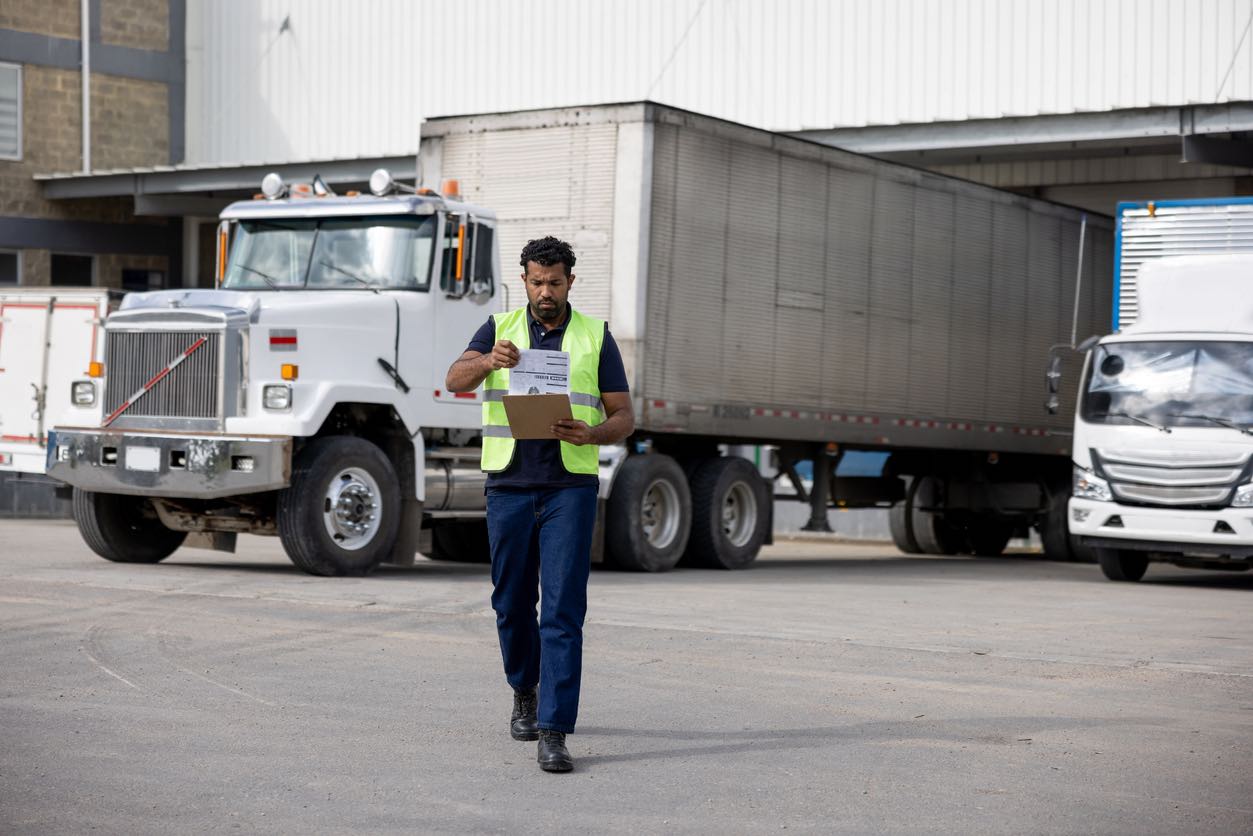There is a mixture of excitement and caution as the US freight industry gets ready for 2024. Although analysts have differing opinions regarding the market’s future course, moderate growth is anticipated despite enduring difficulties such as narrow margins. The future of the trucking sector will undoubtedly be shaped by the upcoming changes in laws, which makes them very important. Businesses need to understand these developments in order to prepare for the approaching changes. This dynamic environment is a reaction to shifting customer expectations and increasing technical breakthroughs, in addition to reflecting prevailing economic trends. The industry’s capacity to adjust to these developments will be crucial to its future success in the years to come.
Furthermore, the freight market is being shaped by sustainability objectives and environmental concerns more and more. Not only is the adoption of greener methods required by law, but there is also increased consumer demand for environmentally responsible business activities. The capacity of businesses to incorporate sustainable practices into their operations will become a competitive advantage as they manage these developments. For industry participants, this changing landscape offers both possibilities and difficulties, therefore it’s even more important than ever to be aware and flexible in your strategic planning.

Ongoing Research and Proposals in Progress
Although there have not yet been any specific changes made to the rules governing pay and labor for the year 2024, there are a number of ongoing studies and suggestions that deserve consideration. Among them are investigations into driver remuneration and improvements to detainee pay, both of which have the potential to impact the financial and operational dynamics of the sector.
The Impact and Implications of Reforms to the Detention Pay System
Norms for driver wages are going to be rethought as a result of the research that the FMCSA is doing on driver compensation and detention time. By implementing prospective changes to detention pay, the objective is to improve driver satisfaction, increase retention rates, and guarantee that deliveries are conducted on time. It is essential for both drivers and carriers to have a thorough understanding of the complexities of these developments.
Testing of Oral Fluids That Is Being Considered
This proposal from the FMCSA to implement oral fluid testing for drug screening is a considerable departure from the conventional approaches that have been used in the past. With this modification, there is the possibility for a reduction in the amount of time and resources spent on testing, as well as an increase in accuracy and convenience. The implementation, on the other hand, is contingent upon the United States Department of Health and Human Services granting certification to the laboratories.

Emission Standards and Electric Vehicles In the United States
The new emission requirements that have been implemented by the Environmental Protection Agency (EPA), in particular for trucks with model years beginning in 2027, represent a significant step forward in terms of environmental sustainability. The industry’s strategy for lowering emissions is also being reshaped as a result of the emphasis placed on electric and alternative energy cars in the year 2024. The ability to adjust to these shifts is absolutely necessary for both carriers and owner-operators.
The Importance of California in Shaping Trends
The tough emission laws that California has implemented, which include the mandate for zero-emission drayage trucks, are establishing new norms that have the potential to impact policy anywhere in the country. The actions taken by the state shed light on the increasing importance that the supply chain industry places on being environmentally responsible.
Maximum Speed Limit that Is Being Considered
This draft proposal from the Federal Motor Carrier Safety Administration (FMCSA) to introduce speed limiters in trucks, with the maximum speed being capped at 68 miles per hour, aims to improve both fuel economy and road safety. Because this rule has the potential to have a significant influence on delivery times, operating costs, and environmental footprint, it is an important issue that stakeholders should keep an eye on.

The Ramifications of California’s Assembly Bill 5 (AB5) Law
The labor law known as AB5 in the state of California, which attempts to redefine the relationship between fleets and owner-operators, is a precursor to potential changes that might occur on a national scale. The law has had a significant influence on the trucking industry, particularly the impact it has had on independent carriers and corporate drivers. These consequences are significant enough to require a thorough investigation.
A Reconsideration of the Proposal for the Competency Test
Reconsideration of a competency test for new drivers by the Federal Motor Carrier Safety Administration (FMCSA), which was first proposed in 2009, brings to light the continuous efforts to improve safety and compliance in the sector. The complexities of this matter are reflected in the many comments that have been provided by industry bodies such as ATA and OOIDA.

Stakeholders in the US freight market face a landscape characterized by shifting labor patterns, environmental concerns, and regulatory changes in 2024. It takes awareness and flexibility to navigate this environment, making sure that companies are ready to take advantage of the new possibilities and challenges that lie ahead. This rapidly evolving setting offers companies a rare chance to be innovative and keep on top of trends. Adopting these modifications can result in increased competitive advantage, better environmental practices, and more operational efficiency. In particular, the drive towards more ecologically friendly operations is a smart economic decision in a market where environmental consciousness is growing, in addition to being required by law.
Further highlighting a developing trend towards a more sustainable and equitable sector are the focus on fair work standards and the possible change in remuneration strategies. A more happy and steady staff is anticipated as a result of this trend, which is crucial in a sector that mostly depends on human resources. Long-term advantages, such as increased staff retention and a favorable image in the sector, are probably in store for companies who proactively adjust to these changes and invest in their personnel. In summary, the secret to succeeding in the freight market of 2024 is to be knowledgeable, flexible, and receptive to these unavoidable changes, setting oneself up for leadership as well as compliance in a field that is continuously changing.

Ship A Car, Inc. stands out as the top freight and auto transport provider in the United States, known for its top-notch offerings. Their staff of committed and educated individuals distinguishes them by providing effective, dependable, and customer-focused solutions that address a wide range of shipping requirements. Their proficiency in handling intricate logistics assures a flawless experience, be it for a single automobile shipment or a large-scale freight transfer. In the vehicle transportation sector, Ship A Car, Inc. has built a solid reputation for quality by putting the needs of its customers first and providing customized solutions. Calling (866) 821-4555 will put you in touch with a world of superior vehicle transport coordination, where each client’s needs are handled with care and expertise.
Ship A Car, Inc. also excels in providing a wide range of services, including door-to-door delivery and specialized transport for heavy machinery and luxury cars. Their dedication to utilizing cutting edge technology and sophisticated logistical techniques makes transportation safer, quicker, and more effective. Their vast network of carriers and experience, along with their technology advantage, enable them to provide reasonable prices without sacrificing service quality. Ship A Car, Inc. is the company that both people and corporations use because of its simple booking process, open lines of contact, and regular updates during the entire process of shipping. They are the greatest in the business because of their unmatched proficiency in managing a wide range of shipping difficulties, and each shipment they handle serves as evidence of their steadfast dedication to quality.
Q1: How will the 2024 freight market changes affect the industry?
A: The freight market will be shaped by the anticipated regulatory changes that will take place in 2024. These changes will include those that pertain to remuneration, environmental standards, and labor policies. These changes will have an impact on operating costs, efficiency, and sustainability practices.
Q2: What are the key environmental updates for the freight industry in 2024?
A: Other significant changes include more stringent emission rules from the Environmental Protection Agency (EPA) and zero-emission requirements for drayage trucks in the state of California. These changes highlight the industry’s transition toward more sustainable and environmentally friendly methods.
Q3: How does Ship A Car, Inc. excel in the freight and vehicle shipping sector?
A: Ship A Car, Inc. is a leading option in the United States freight and car shipping industry because of its extraordinary dedication to ensuring the complete happiness of its customers, its rapid service delivery, and its competence in the coordination of automobile transportation.




